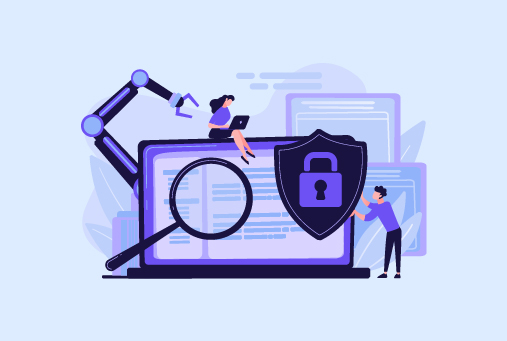
The Impact of Secure Web Browsers on Data Security
Data security is growing in importance nowadays. More online transactions increase the chance that hackers will target personal and financial data. Data protection starts with using web browsers. This article explains the role that secure web browsers play in keeping our data safe.
Exploring Secure Web Browsers:
Features in a secure web browser are meant to ensure that user data is protected and privacy is improved. They use encryption algorithms and HTTPS to set up communication with the sites that users access. They make it a priority to stop scripts from collecting cookies and malware.
Advanced Encryption Methods:
Using encryption is a fundamental characteristic of web browsers. If someone visits a website using encryption, their data will be safely shared between their device and the website server. So, should an attacker get their hands on the data while it is travelling, the data would still be secret because they would not have the keys to access it.
SSL/TLS Certificates:
Web browsers that are secure use HTTPS and SSL/TLS certificates to form safeguarded links between users and websites. The certificates check the legitimacy of websites, so users are assured that their data remains confidential. This was created to thwart attempts by unauthorized actors to listen to or change your internet conversations.
Defense Against Phishing Attacks:
Online, phishing is still a real threat that endangers data security. Web browsers now offer features to find out if websites might be scams or if an actor is misusing them. These features regularly scan URLs in real time and send warnings to users if there are risks at a site.
Integration with Antivirus Software:
Several antivirus applications are embedded in secure web browsers to protect users from malware. By teaming up, we manage to watch over the information kept on the user’s device and check all downloaded files for suspicious software.
Incorporation of Privacy Settings:
Privacy plays a main role in secure web browsers by including special privacy modes such as private and incognito browsing. In these modes, users can web surf while their browser does not store search history, cookies or temporary files. By reducing exposure to ad tracking and minimizing the chances of data leaks, these privacy features enhance data security further.
Regular Security Updates:
Web browsers stand out by making sure their security is always getting better with frequent updates. Monitoring for dangers and continuous updates to fix browser problems are done by developers all the time. It is important to update your web browser to guarantee a good and secure way of browsing.
Educational Resources and Security Settings:
Users can learn about internet dangers by going to websites that discuss data security from secure web browsers. Users gain the ability to modify how they browse the internet and change browser settings to strengthen security. Because of this, websites must request access to your device’s camera or microphone before they can use them, making their usage safer.
Balancing User Convenience and Data Security:
A crucial factor in evaluating the impact of web browsers on data security is finding the equilibrium between user convenience and safeguarding data. Secure web browsers strive to deliver a browsing experience while prioritizing data protection. This equilibrium ensures that users are not burdened by security measures while still preserving their privacy and safeguarding information.
User-Friendly Interface:
Conclusion:
Start Browsing Privately!
iProVPN encrypts your data for protection against hackers and surveillance. Unblock your favorite streaming platforms instantly with the best VPN for streaming.





